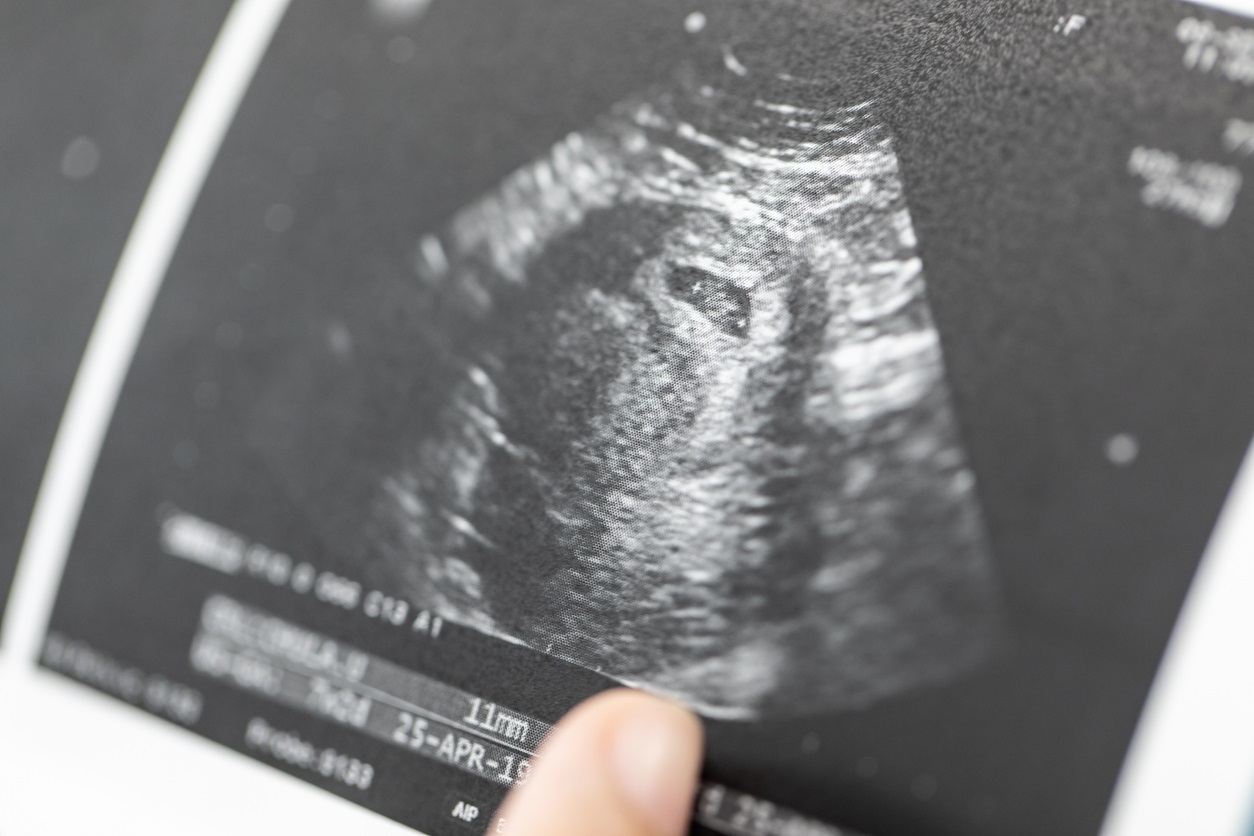This course is part of the RCOG Core Knowledge series.
Ultrasound scanning is safe, relatively low cost and has an unmatched ability to capture both still and live images of the fetus in utero. Globally most women are offered at least one ultrasound in pregnancy. In the UK, the National Institute for Health and Care Excellence (NICE) recommends that pregnant women are offered two scans in pregnancy – the first at 11+2 to 14+1 weeks of gestation and the second between 18+0 and 20+6 weeks of gestation.
The purpose of the first trimester scan is to:
- confirm viability
- establish gestational age
- detect multiple pregnancy and chorionicity
- measure fetal nuchal translucency if the woman agrees combined screening for the detection of Down's, Edwards' and Patau's Syndromes
- detect early fetal structural anomalies.
The second trimester scan (20-week screening scan) is a screening test that aims to identify fetal structural malformations, assess fetal biometry and liquor volume and detect low-lying placenta.
Most women will have normal first and second trimester ultrasound scans. A small number of women will have an abnormal result. It is the role of the obstetrician to provide further information, counselling, assessment and treatment to these women.
This tutorial will focus on the role of the ultrasound in screening for fetal anomaly and will help you care for your patients following the detection of any unexpected finding.
When you have completed this course, you will be able to:
- provide a woman with appropriate pre-test counselling before a midtrimester anomaly scan
- describe the limitations of a midtrimester anomaly scan
- describe the ultrasound characteristics of normal fetal anatomy and a range of fetal abnormalities
- outline the further management of a range of fetal abnormalities that can be diagnosed on ultrasound
- discuss the prognosis for a range of fetal abnormalities
- understand the law relating to termination of pregnancy for fetal abnormality.
Dr David Beaumont MRCOG (2022)
David Beaumont is a Consultant Obstetrician at the Lancashire Women & Newborn Centre, Burnley, with a Special interest in Fetal Medicine.
Dr Martin Maher MRCOG (2020,2022)
Martin Maher is a consultant in fetal medicine and high risk obstetrics at the Lancashire Women & Newborn Centre, Burnley. He undertakes four fetal medicine ultrasound scan lists per week. This includes scanning, invasive testing, counselling of patients and close liaison with other medical specialities. He is the lead for fetal medicine and antenatal screening in East Lancashire.
Royal College of Obstetricians and Gynaecologists. Amniocentesis and Chorionic Villus Sampling. Green-top Guideline 8. London: RCOG, 2021.
GOV UK website. NHS fetal Anomaly screening programme. [Accessed March 2023].
eLfH eLearning for healthcare. About the NHS screening programmes. [Accessed March 2023].
Product Details:
Product Name
Price
Ultrasound scanning of fetal anomaly - 12 Month Access
£64.80
Login to purchase
| Product Name | Price | |
| Ultrasound scanning of fetal anomaly - 12 Month Access | £64.80 | Login to purchase |

